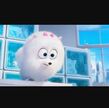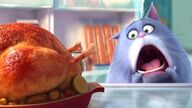Pets are animals domesticated by humans for spiritual rather than economical purposes. This spiritual purpose includes both static reward and dynamic play. So this also leads to a variety of pet forms. As for the development of the pet market, it depends on three aspects: the number of people who have the needs that pets can meet, the number of people who choose to use pets to meet such needs, and the completeness of the environment required to raise pets.
The first question is what needs can pets meet. This is actually very complicated, because the relationship between people and pets is a multiple game, that is, in the process of raising pets, there will be changes in needs due to changes in pets or events. But in the final analysis, it is the two needs of companionship and entertainment. If it is described in a more vivid way, it can be said that the pet is not only the owner's child, but also the owner's mirror. Pets, as creatures, are cats or dogs in most households, and are naturally similar to children. In the context of the greatly delayed birth time in modern society, the instinct for offspring will not disappear, and pets are the sustenance of this kind of emotion in some aspects. Even better, pets are not humans after all, and some immoral behaviors used by humans on pets become ambiguous and even reassuring. The most widespread is domestication. Social animals have an innate sense of hierarchy. For dogs, the owner is the same social role as the alpha wolf. For many city dwellers, pets naturally combine the three roles of dependent companions, plush children and absolutely obedient slaves. It is worth mentioning that in some families with existing pets and infants, pets may attack infants. This is caused by pets mistakenly thinking that their family social roles are higher than infants. This judgment must be based on the owner. , that is, made in the behavior of the alpha wolf.
As for being a mirror, a pet is a partial externalization of a person's personality or an externalization of a memory over a period of time. This behavior is no different from collecting dolls or being keen to dress up your own avatar. Of course, all pet owners will allow their pets to have both functions at the same time, but in different proportions. For people who tend to keep pets more inclined to children, pets are more of an other to them, and they pay more attention to the interaction between pets and themselves, such as dressing up pets or expressing thoughts about pets. For people who keep pets more inclined to be mirrors, pets are more of themselves, and the interaction with pets is more manifested in observing themselves from an external perspective.
The second question is how many people will choose to use pet ownership to meet their needs. This question can also be roughly formulated as: what constitutes a substitute for pets. Of course, there are no two things in this world that can completely replace each other, otherwise the two will essentially become one thing. When it comes to raising pets, the need to keep pets statically, or to be more inclined towards mirrors, is essentially the need to talk to oneself, to eliminate worries and calm down. In this regard, it seems that many things can be satisfied, such as religion, sports, games and so on. In other words, keeping pets statically is actually a mind-watching behavior with pets as the carrier. There is not much difference between watching Miaomiao combing her hair in the sun and watching the clouds in the sky.
For people who are more inclined to keep pets as children, pets themselves are already a substitute, and it may not be necessary to find a substitute for pets. So probably only after having a baby can you stop keeping pets, but there are also many families who continue to keep pets after raising children. Therefore, the main market customers of pets are still the people who keep pets dynamically.
The last factor is the completeness of the external conditions required to keep pets. Owning a pet is not a one-time consumption behavior, but a collection of consumption that lasts for at least several years. In this process, a large amount of subsequent consumption will be generated. If the overall facilities are not perfect, even if consumers make impulsive purchases of pets at the beginning, there is still a high probability that they will choose to abandon pets in the subsequent raising process. These facilities include, but are not limited to, pet outdoor entertainment areas, pet custodial facilities, pet hospitals, new-born pet acquisition facilities, pet cadaver disposal facilities, and more. In a too chaotic pet market, the government is more likely to choose to ban or greatly increase the threshold for raising pets. This policy may further lead to an increase in the number of people who keep static pets, after all, keeping a small goldfish in the aquarium does not increase the cost too much.
View more about The Secret Life of Pets reviews











